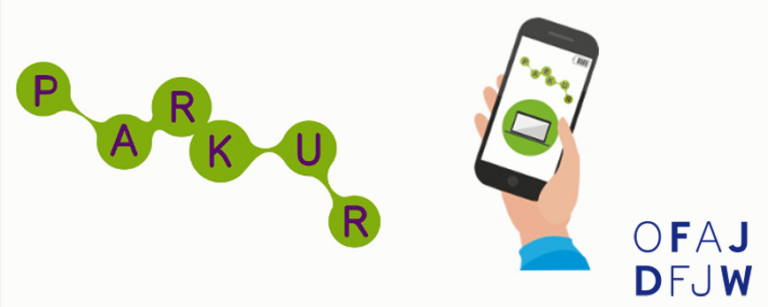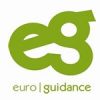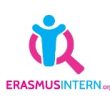Going on an internship abroad

As part of your studies within Groupe IGENSIA Education, you have the possibility of doing an internship abroad. An experience outside our borders allows to combine cultural, professional and of course linguistic experience. It can also be an asset on your resume and make the difference on the job market.
Step 1: Internship search
Searching for an internship abroad is a personal procedure and must be done as early as possible. You can contact your school’s Corporate Relations officer who can guide you through your research.
Here are some platforms and websites than can help you on your international adventure:
Step 2: Approval (Agreement)
Congratulations on finding your internship! You must now have your internship approved by your school via the internship agreement and make it signed by your school and your host company.
Step 3: Mobility Pass for Internship
Mobility Form for an Internship to fill in online, attaching your internship agreement
Step 4: Financial supports
The financial supports you can benefit from:
The ERASMUS+ program
Financed by the European Union, it promotes mobility and exchange of interns or apprentices. According to your profile and availability, you can obtain an Erasmus+ scholarship.

Erasmus+ scholarship eligibility:
Mobility for Internship long stay (from 2 months)
The program is accessible to students enrolled in a higher educational institution in one of the program’s countries. The duration of your internship must last between 2 and 12 monthsand the amount of your scholarship will be defined according to the duration of your internship and the destination country.
Your internship must have some link with your diploma and your needs regarding personal development and must be integrated in your studying program. You can do an internship in any company located in one of the Erasmus+ countries that are part of the program (except EU institutions, bodies and agencies).
Application files are processed according to the date of receipt of the complete file.
Selection
The allocation of these various fundings is not automatic and remains subject to the decision of the Commission for the allocation of mobility supports. The selection criteria are as follows: language level, motivation, relevance of professional project and academic average. Priority will be given to students with compulsory mobility. Incomplete applications will be rejected.
Funding
The programme member coutries are divided into three groups as follows:
Group 1: Germany, Austria, Belgium, Denmark, Finland, Ireland, Iceland, Italy, Liechtenstein, Luxemburg, Norway, Sweden, The Netherlands
Group 2: Cyprus, Spain, Estonia, Greece, Latvia, Malta, Portugal, Slovakia, Slovenia, Czech Republic
Group 3: Bulgaria, Croatia, Hungary, Lithuania, North Macedonia, Poland, Romania, Serbia, Turkey
Group ICM : Albania and Bosnia-Herzegovina
The amounts will be as follow:
Group 1: €550/month* + a travel package communicated by the Erasmus+ coordinator
Group 2: €500/month* + a travel package communicated by the Erasmus+ coordinator
Group 3: €500/month* + a travel package communicated by the Erasmus+ coordinator
Group MIC : €700/month + a travel package communicated by the Erasmus+ coordinator
Calculated rates for each country group will be defined to optimize usage of the available funding and according to the number of applications.
*Grant amounts may vary depending on the Erasmus+ financial agreement.
Your ERASMUS+ coordinator remains at your disposal for any questions.
Once I have my work placement agreement, I fill in the Mobility form for an internship (this step must be completed no later than 30 days before the start date of my mobility program).
1st STEP – Upon receipt of this form, the Erasmus+ coordinator will contact me to request the following items:
- Identity card
- INE number
- Passport photo
- School certificate
- EHIC certificate
- Bank statement
- The result of my OLS test. You will be given access by the Erasmus+ coordinator.
- Internship Mobility Form
- The pedagogical contract completed and validated by my school and my host company abroad.
Only the version signed by all three parties will be accepted for processing. Electronic signatures are accepted.
All documents must be sent in PDF format. Photos are not accepted and the file will be inadmissible.
2nd STEP – Once my coordinator has received my complete file, she prepares my Erasmus+ mobility financial contract (E+ KIT PART 1) and sends it to me. This contract must be signed by hand.
These two steps determine the payment of my Erasmus+ grant and my eligibility for it. I must contact my Erasmus+ coordinator at least 30 days before the start of my mobility.
- I check my school mailbox to ensure a follow-up of my scholarship file with the Erasmus+ coordinator
- I inform my school and the Erasmus+ coordinator of any changes to my pedagogicall contract
I will send my Erasmus+ coordinator, within 30 days of the end of my mobility (end date indicated on the certificate of attendance) :
- During the mobility” and ‘After the mobility’ documents signed by the host organization
- The participant’s report, which I will not submit without the help of the Erasmus+ coordinator.
- The attendance certificate completed and signed by the host organization
- The return OLS test
Mobility for Internship short stay (up to 1 month)
The programme is accessible to students enrolled in a higher educational institution in one of the programme countries. Your internship must combine both a period of virtual activity* and a physical period. The duration of your internship must last between 5 and 30 days and the amount of your scholarship will be established according to the duration of your internship.
Your workplace assignments should be closely linked to your study programme and they should integrate personal development needs. It must also be integrated into your study programme and enhanced by obtaining 3 ECTS credits. You can do an internship in any company located in one of the Erasmus+ countries that are part of the programme (except EU institutions, bodies and agencies)**.
Complete applications are processed according to the receiving date.
*Virtual activity is defined by the European Commission as an activity carried out from the sending country.
**Your internship must be validated by your training center prior to any grant application process.
Selection
The allocation of the grant is not automatic and remains subject to the decision of the Selection Commitee. The selection criteria are as follows: language level, motivation, relevance of professional project and academic average. Priority will be given to students with compulsory mobility. Incomplete applications will be rejected.
Funding
The programme member coutries are:
Denmark, Finland, Ireland, Iceland, Liechtenstein, Luxemburg, Norway, Sweden, Germany, Austria, Belgium, Cyprus, Spain, Greece, Italy, Malta, The Netherlands, Portugal, North Macedonia, Bulgaria, Croatia, Estonia, Hungary, Latvia, Lithuania, Poland, Czech Republic, Romania, Serbia, Slovakia, Slovenia, Turkey.
Students on short-term physical mobility receive €79.00* per day until the 14th day of activity and €56.00* per day between the 15th and 30th day of activity (excluding travel days) + a travel package communicated by the Erasmus+ coordinator. Only the period of physical activity is eligible for Erasmus+ funding.
Any additional subsidies may be granted for “support for inclusion” or “environmentally friendly travel”. Each situation will be examined individually in compliance with the rules set out by the European Commission.
*Grant amounts may vary depending on the Erasmus+ financial agreement.
Your ERASMUS+ coordinator remains at your disposal for any questions.
Once I have my work placement agreement, I fill in the Mobility form for an internship (this step must be completed no later than 30 days before the start date of my mobility program).
1st STEP – Upon receipt of this form, the Erasmus+ coordinator will contact me to request the following items:
- Identity card
- INE number
- Passport photo
- School certificate
- EHIC certificate
- Bank statement
- The result of my OLS test. You will be given access by the Erasmus+ coordinator.
- Internship Mobility Form
- The pedagogical contract completed and validated by my school and my host company abroad.
Only the version signed by all three parties will be accepted for processing. Electronic signatures are accepted.
All documents must be sent in PDF format. Photos are not accepted and the file will be inadmissible.
2nd STEP – Once my coordinator has received my complete file, she prepares my Erasmus+ mobility financial contract (E+ KIT PART 1) and sends it to me. This contract must be signed by hand.
These two steps determine the payment of my Erasmus+ grant and my eligibility for it. I must contact my Erasmus+ coordinator at least 30 days before the start of my mobility.
- I check my school mailbox to ensure a follow-up of my scholarship file with the Erasmus+ coordinator
- I inform my school and the Erasmus+ coordinator of any changes to my educational contract
I will send my Erasmus+ coordinator, within 30 days of the end of my mobility (end date indicated on the certificate of attendance) :
- During the mobility” and ‘After the mobility’ documents signed by the host organization
- The participant’s report, which I will not submit without the help of the Erasmus+ coordinator.
- The attendance certificate completed and signed by the host organization
- The return OLS test
For more information: https://generation.erasmusplus.fr/etudiants-erasmus-tout-savoir-pour-preparer-votre-stage/
Other fundings subject to social criteria specific to regions:
- Conseil Régional Auvergne-Rhône-Alpes :
Bourse Régionale Mobilité Internationale Etudiant (BRMIE) : go to the website website and contact the educational board of your school at the same time to help you prepare your application - Conseil Régional Occitanie (only available for ICD Toulouse students) :
– Regional scholarship for CROUS granted students : send your request directly on the Occitanie region website and mandatorily inform your school so that your request can be approved (Mrs Cécile CASELLAS CCASELLAS@igensia.com)
– Aid scheme for the international mobility of students from Occitanie Region: contact Mrs CASELLAS directly (CCASELLAS@igensia.com)
Step 5: Social care and liability
Important : It is recommended to get informed upfront about conditions regarding the country of destination’s social care. Start your procedures at least 6 weeks before departure.
Protection ensured by the French student status: 3 possible cases
- Internship done within the European Union or Switzerland done by students from a country member of the European Unio: ask for your European Health Insurance Card (EHIC) to your Health Insurance Fund via ameli.fr. If you do not have a EHIC or, in addition to it, you can ask for a refund of medical fees to the National Health Center abroad when coming back to France.
By using the European Health Insurance Card (EHIC), you will benefit from the same coverage than the country residents. However, refund of medical expenses will be set according to the basis of the French convention tariff and not to the actual expenses. As healthcare may be much more expensive in other countries, you will have to cover the difference ! Also, only unexpected and urgent care can be covered by the EHIC and repatriation is not included.
- Internships in Quebec done by French students: the student must request the SE401Q form to his/her Local Helathcare Insurance Office via ameli.fr
- Internships done outside of the European Union: the National Health Care does not allow you to benefit from a coverage for your medical expenses. It can possibly refund a part of it when coming back home but still on the basis of tariffs fixed by the French convention, if medical care is judged urgent and unpredicted. Which means that you should pay your medical expenses on site, keep the invoices and documents for a possible refund.
Important gaps can occur between actual costs and tariff fixed by the French convention. As medical care outside of Europe can be extremely expensive, costs can rapidly increase. We strongly recommend you to subscribe to an additional specific health insurance that works for the country and the lenght of your stay at the institution you prefer (parents or private insurance) including a repatriation insurance.
For more information regarding refunding modalities depending on the country :
Centre des Liaisons Européennes et Internationales de Sécurité Sociale CLEISS: www.cleiss.fr
Step 6: Compulsory Insurance
An insurance guarantees that you will be covered in case of important health issue, accident, fall, serious illness. Indeed, in case of serious problem, hospitalization or repatriation costs can quickly reach important amounts and lots of countries do not have such health system as France does, covering most of the expenses.
The repatriation insurance certificate allows repatriation without additional costs in case of serious problem and allows you to benefit from health care in good sanitary conditions. It must be valid.
Groupe IGENSIA Education’ insurance : MAIF
As part of the insurance contract that Groupe IGENSIA Education suscribed to MAIF, all students from Groupe IGENSIA Education benefit from “Civil Liability – Defense” “Property damage” (within a limit of EUR 600,00), “Recourse-Legal Procetion” and “Assitance) guarantees.
The certificate of coverage will be sent to you before your departure so no need to ask for it.
Beware: this insurance does not cover you for all risks. It is important that you check regarding the country you are going to. For all additional costs, you must suscribe to an additional insurance.
- HEYME Insurance
Groupe IGENSIA Education is partner of HEYMEwhich supports you in preparing your stay abroad by providing you suitable solutions and answering your questions according to your destination and mission.
By being covered with HEYME World Pass, it represents EUR 0,00 at your expense !
- A refund of all your medical expenses from EUR 1,00, for real costs
- Coverage of health expenses in case of hospitalization
- Unlimited 24-hour medical teleconsultation included
- Repatriation assistance included
- Liability insurance and individual accident insurance included

Cover cannot be taken out for the following countries: Afghanistan, Belarus, Burma, Burkina Faso, Burundi, Central African Republic, Djibouti, Ethiopia, Iraq, Iran, Israel, Lebanon, Liberia, Libya, Mali, Mauritania, North Korea, Niger, Nigeria, Palestine, Russia, Somalia, Sudan, South Sudan, Syria, Ukraine, Venezuela, Yemen.
Purpose: think about everything to leave with peace of mind and know you will be well taken care of and refunded if necessary.
Thanks to Groupe IGENSIA Education, benefit from preferential prices with 20% of immediate discount with partner code IGENSIA-20 on WORLD PASS and WORLD PASS SCHENGEN offers.
Find out more :
http://worldpass.heyme.care/
Outgoing mobility information sheet FR
Things to think about for a serene mobility !
Before leaving
- Subscribe to the Ariane web portal set up by the Ministry of Foreign Affairs in order to declare your trip free of charge by indicating your contact details abroad and designating a contact person in France if necessary
- Consult the relevant country file in the Travel advice section of the Ministry of Foreign Affairs’ website.
- Consult your doctor before leaving
- Check that you have the necessary and mandatory vaccinations before your departure
- Check exchange forums or social networks used by students who previously went on an internship where you will go
On site
- Do not go to any red zone, this is strongly discouraged. Avoid orange zones unless there is a compelling reason.
- Keep some documents safe (bank card, list of emergency phone numbers of consulate, doctors, referral hospitals as well as copies of your ID, medical insurance, etc.) It is a good idea to scan and send all these documents to your mailbox to access it from everywhere.
- Choose your accommodation in a quiet and safe area. You can find here some accommodations for students around Europe
- Repect the local and government law and follow the customs and practices (also religious) if necessary.
- Keep contact with the International Relations Office of your home and host university and your school all along your stay.
- Do not forget to mention any modification regarding your situation, especially if you return to France for an emercency, if you change company or in case of early termination of your internship to your Company Tutor, Internship Officer or Company Relation Officer and your Erasmus+ coordinator (if you have an Erasmus+ scholarship)
tools box
Euroguidance : 10 key points for an internship in Europe + country sheets
The essential steps in your search for an internship abroad
Check-list (before departure)
- Valid ID or passport
- VISA and valid residence permit (if necessary)
- European Health Insurance Card (EHIC), if you travel inside Europe (referring information above)
- Private additional insurance above (referring information above)
- Liability insurance
- Accommodation on site confirmed. Go on the Erasmus Play platform to find an accommodation around Europe.
- Transport tickets booking (train, plane, bus…)
























